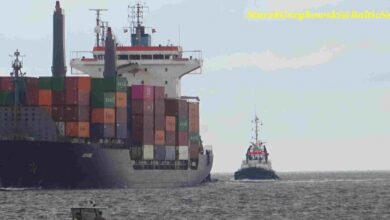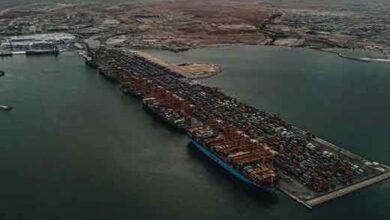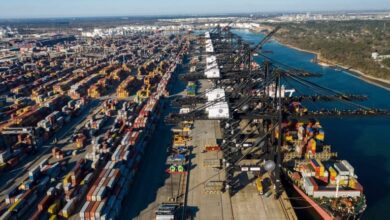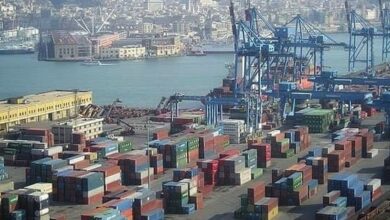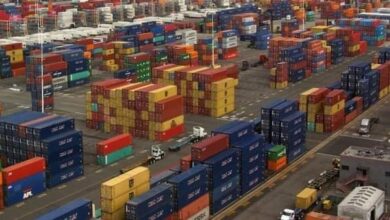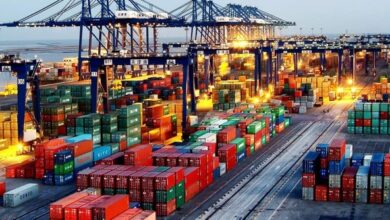Seaway strike: Negotiations set to resume

The St. Lawrence Seaway remains closed to traffic by strike action today. It seems likely to remain closed until some time after Friday, when negotiations are expected to resume.
Since the strike began at midnight this past Saturday, both parties to the dispute, the Unifor union and the St. Lawrence Seaway Management Corporation (SLSMC), met individually with Canadian Federal Labour Minister Seamus O’Regan and Transport Minister Pablo Rodriguez, who urged them to return to the table.
Now resumption of talks is set to begin Toronto on Friday morning, October 27, under the auspices of the Government of Canada’s Federal Mediation and Conciliation Services.
SLSMC says its management has been working since the outset of negotiations to reach a mutually beneficial agreement with its unionized employees, and that is pleased with the planned resumption of talks with Unifor.
Unifor released the following statement:
“Unifor will comply with the call to mediation and will continue to support our members on the picket line while talks take place. Our goal remains to achieve a fair and reasonable collective agreement for those who work along the St. Lawrence Seaway. We strive to also make sure our members, their rights and collective agreement are respected by the corporation.”
IMPACT OF SHUTDOWN GROWS
While the Seaway closure hasn’t yet gotten the media attention of the long running British Columbia ports dispute, a growing number of ships are waiting to enter the Seaway and the impact of the shutdown is mounting.
Catherine Cobden, president & CEO of the Canadian Steel Producers Association (CSPA) released the following statement:
“The CSPA urges timely resolution to the ongoing strike at the SLSMC with as minimal disruption as possible. Steel and iron represent the highest value of goods shipped along the St. Lawrence Seaway. We are reliant on the St. Lawrence Seaway as one of our most vital conduits for steel trade and the delivery of our key raw materials.”
“The annual shipping season is finite. Every day that is lost will negatively impact the industry. We cannot afford supply chain disruptions whether with our own raw material supply or in our role as a critical steel supplier to many markets.”
Fertilizer Canada notes that fall is a crucial time in Eastern Canada for the import of fertilizer shipments in preparation for spring and ensuring fertilizer is available to farmers for spring application is essential to protect crop yields and food security.
“The fertilizer industry depends on reliable supply chains to get our products to farmers,” said Karen Proud, president and CEO Fertilizer Canada. “Any disruption to the supply chain, even for a day or two, impedes our industry’s ability to deliver products in a timely manner.”
This is the second labor dispute in the last four months that has shut down Canadian ports that are crucial to Canada’s supply chains, she added. The federal government must support the expeditious resolution of this strike to protect Canada’s trade. Geopolitical events, like the war in Ukraine, have put pressure on the global fertilizer supply, and dependable supply chains are essential to Canada’s reputation as a reliable and stable trading partner.
“This strike is one of many disruptions we have seen recently and underscores the importance of strengthening Canada’s supply chains,” said Proud. “Once this labor disruption is resolved, the government needs to accelerate the recommendations of the 2022 National Supply Chain Task Force, which includes addressing systemic labor-dispute delays.”




